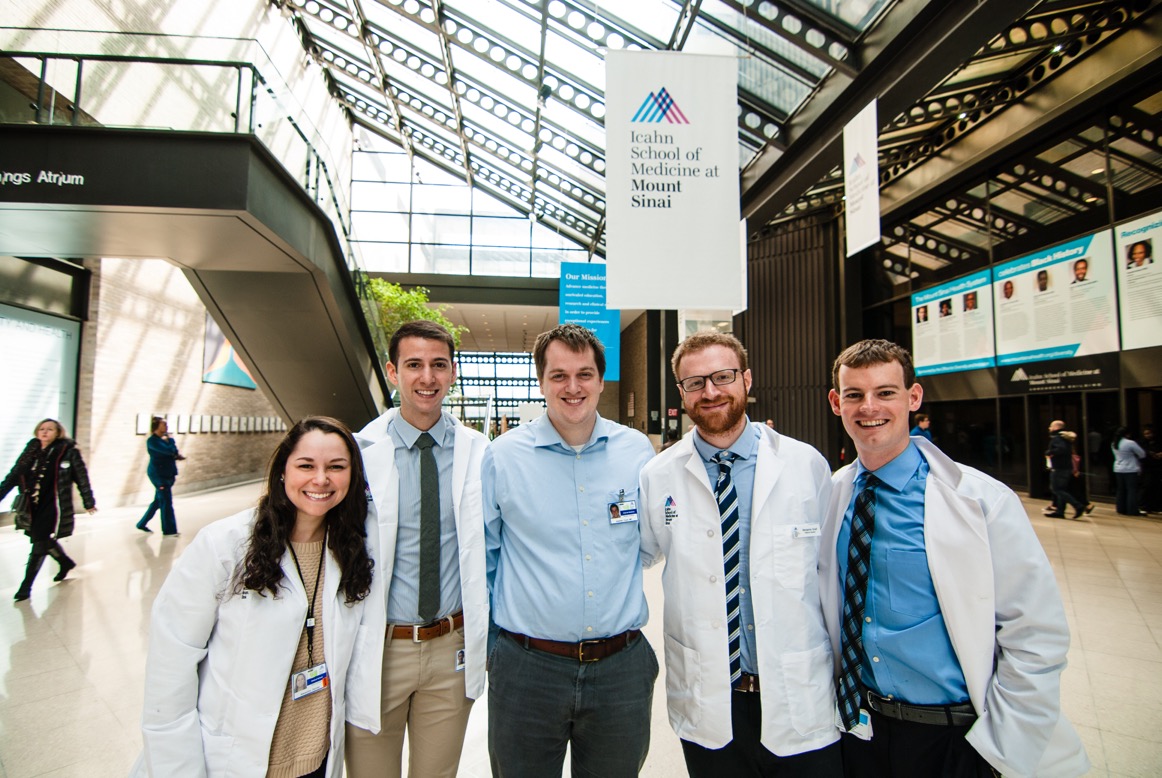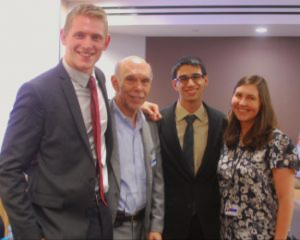
Dr. Andrew Coyle (a former mentor) and founders of the Leaders in Health Policy Program
Introduction
Healthy policy decisions made at the municipal, state and national levels disproportionately affect Mount Sinai’s East Harlem community. Sinai students are acutely aware that physicians have a vital role to play as leaders in health policy and advocates for their most vulnerable patients. However, health policy and leadership are not significant parts of medical education. When professors do teach about health policy and leadership, it is often from a birds-eye view, with little discussion about the impact of policy decisions on patients’ lives.
The Health Policy Program at Mount Sinai has a triple aim:
- Create leaders in health policy innovation.
- Expose students to the effects of health policy and systemic healthcare forces on patients’ lives.
- Empower medical students to take action now to change or improve current health policy through research, policy writing, advocacy and conference attendance.
Engaged Participation in a Comprehensive Nexus Course
Students selected for the program will attend the American Healthcare System Nexus course, a year-long weekly curriculum. Experts lecture on issues including:
- History of American Healthcare
- Healthcare Reform: Access, Quality, Costs
- Insurance: Single-Payer, ACA, Medicare/Medicaid
- Pharma: Drug Discovery, Pricing, Patents
- Hospitals: Operations, Logistics, Financing, etc.
- Physicians: Shortages, Consolidation, Burnout, etc.
- Technology: Investment, Inventions, EMRs
- Social Determinants: Homelessness, Poverty, etc.
- Global Health
By the end of the course, students will have gained a working understanding of each of the key pieces of health care systems, a familiarity with key terms and concepts and an exposure to important issues needing further reform. Students not in LHP will also be invited to attend these interactive, engaging lectures.
Engaged Community with Like-Minded Students and Faculty
Once a week, HPP fellows will come together in a relaxed setting to engage in discussions about pertinent policy issues related to the area most recently covered in the Nexus course. These lunch meetings are meant to build community, provide a forum for more lively debates and push fellows to explore potential solutions to commonly posed health care problems. The faculty mentors will attend these meetings periodically to work with students and encourage conversation.
Structured Mentorship
Our faculty advisors will be closely involved and will provide opportunities to guide students toward resources and guide their professional development. We strongly encourage all students to engage in policy-focused shadowing and to provide reflections on their experiences.
Assistance in Writing and Publishing Health Policy Perspectives
Students will be encouraged to discover issues that are personally meaningful to them and will be encouraged to work in dyads to develop articulate, informed points of view. Program directors and faculty advisors will assist students in coming up with topics, finding experts willing to provide input and evidence, edit and guide students in writing meaningful perspectives and help in selecting appropriate media or journal outlets for publication. By the end of the program, each student will have the opportunity to publish articles and/or research on health policy topics of their choice.
AOA-Funded Support for Conference Attendance and Research
Our status as an AOA-funded initiative allows us to offer financial support for students to attend health policy conferences and/or undertake policy-focused research projects.
If being a part of the program sounds exciting to you or if you want more information, please email the co-heads for the 2021-2022 academic year: Logan Cho, Lily Cohen, and David Youssef.

